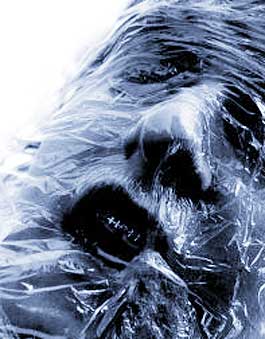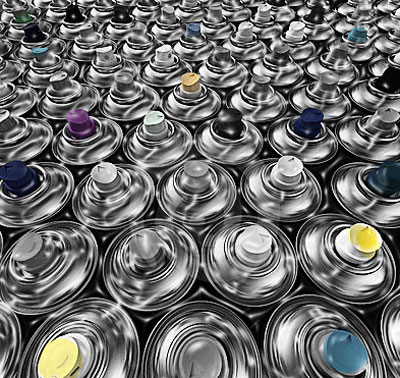Huffing
Huffing, also known as inhalant
abuse, is inhaling chemical vapors, often found in household
cleaners, to achieve a euphoric high. There are many different
substances that can be used for huffing. The 2000 National Household
Survey on Drug Abuse showed that the majority of users fall between
the ages of 12 to 17 years old.
|
|
 Huffing and Breathing
Huffing and Breathing |

Second to this is the age group of 18 - 25 and 18-percent of
12 and 13 year olds had admitted to huffing once or more in their
lives. Huffing produces the same intoxication effect that alcohol
produces. Initial symptoms are drowsiness, light-headedness, and
loss of inhibition.
If the abuse is continued, further symptoms may be reported such
as feeling light-headed, seeing things that aren't reality, becoming
argumentative, becoming detached and poor judgement. Individuals
who choose to abuse the chemicals even further will experience moodiness,
suddenly losing weight, not being attentive, being uncoordinated,
becoming easily irritated, and a loss of muscle strength.
Huffing is a very dangerous abuse problem that can cause severe
injury and even lead to death. Damage of the brain plus other internal
organs may be caused due to huffing including the heart, liver,
kidneys, and lungs. Brain damage can result in the individual's
total personality changing, less brain functioning, loss of memory
and loss of ability to speak clearly. Sudden cardiac death has also
been reported due to fatal cardiac arrhythmias that has been caused
by huffing.
There are
several different categories that the toxins used for huffing
may fall into. These include volatile solvents, aerosol sprays,
gases, and nitrites. Volatile solvents are those that can be found
in paint thinners, nail polish remover, gasoline, felt-tip markers,
glue, and other household products. Aerosol sprays contain solvents
and propellants that are sometimes used for huffing.

These aerosols include deodorant, spray paint and hair products.
Gases include mostly nitrous oxide such as laughing gas, and may
not be found as easily around the house. Nitrites are a number of
chemicals that are found in products such as room deodorizers, and
are more likely to be abused for their effects of sexual enhancement
as opposed to intoxication. Nitrites are more likely to be abused
by older people rather than young people.
Although huffing does not exclude anyone from becoming an abuser,
it is more likely to be popular with young people, especially teenagers.
Parents should be aware of the signs of chemical inhalant abuse
as these substances can easily be found around the house and it
often is difficult to identify them as abusive drugs.
Inhalant chemicals are also especially attractive to teens as they
are easily purchased by people of any age and because they are
inexpensive. Parents should be looking for signs of abuse such
as intoxication as well as mouth sores, sometimes accompanied
by unusual odors.
|


